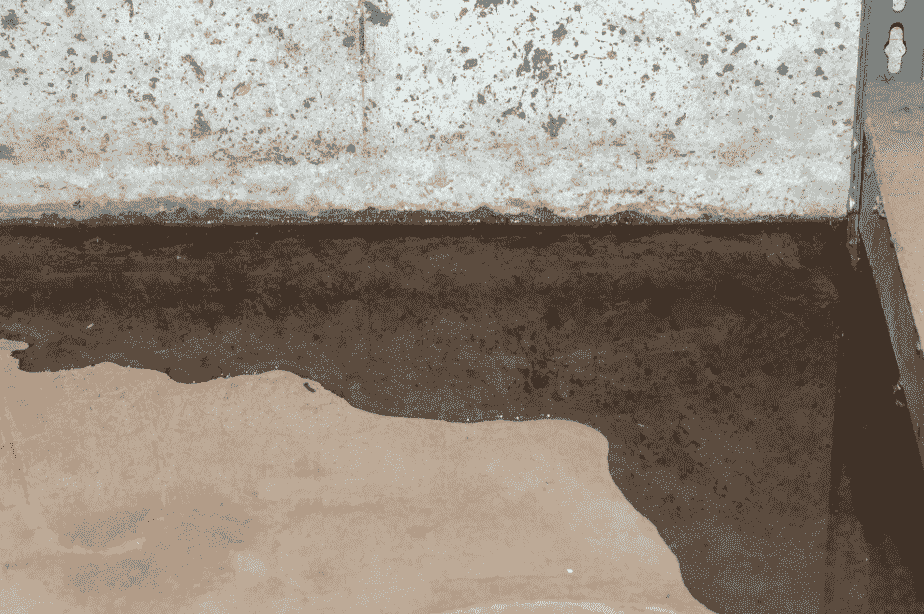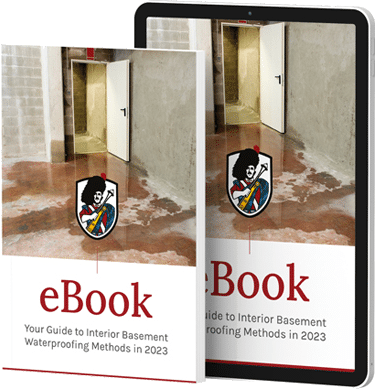Thanks to the bitter cold we have experienced recently, it’s clear to see that winter is here. Unfortunately, the winter season is fully capable of having a negative impact on your house—especially your foundation and basement. Many people associate a flooded or leaky basement with heavy rain, but both are possible (and extremely common) throughout the snowy winter months as well.
There are various factors that can potentially result in a flooded or leaky basement. Most leaks are ultimately caused by excess moisture surrounding your home’s foundation. It’s important to remember that moisture isn’t necessarily a result of rainfall. Our homes are surrounded by moisture throughout the winter season. If you suspect a crack in your foundation or a leak in your basement, it’s always best to consult a specialist in order to understand any underlying issues potentially causing your leak and repair them.
Here are six common issues that can potentially be the cause of your basement leak:
1 Basements are Known to Radiate Heat—Resulting in Melting Snow
Despite the temperature being below zero outside, your basement is much warmer than that. The ground surrounding your home is cold, frozen, and snow-covered but your basement is warm thanks to your furnace which causes radiating heat. Your home typically radiates heat up to eight inches from the basement walls, resulting in any nearby snow or frost to melt. As the snow or frost begins to melt around the foundation, moisture accumulates and gets trapped between the soil and basement walls. When moisture begins to accumulate with nowhere to go, it takes the path of least resistance which, unfortunately, means your basement.
2 Hydrostatic Pressure
We are all aware of what gravity is, and more importantly, what gravity does. Hydrostatic pressure is the term given to gravity’s downward pull. Hydrostatic pressure is usually the culprit when it comes to a flooded or leaking basement, as the downward pull of gravity pushes down on the excess moisture surrounding your home. Obviously, as the pressure continues to mount, moisture is forced through any existing cracks or holes in your foundation. Hydrostatic pressure is capable of creating so much force that new cracks begin to form in order to provide the moisture with a much-needed exit route.
3 Eavestroughs and Downspouts Draining Close to your Home
Both eavestroughs and downspouts are extremely important to your home—especially because they are designed to keep excess water away from it. However, if your eavestroughs or downspouts are not maintained or installed properly, they are known to cause damage to your home. It’s extremely important to ensure all of your eavestroughs are clear of any debris and your downspouts are a minimum of four feet away from your foundation.
4 The Wrong Type of Soil Surrounding your Foundation
The soil surrounding your foundation is extremely important—especially when trying to prevent any water from entering your basement. Certain soils will absorb any moisture while others will allow the moisture to accumulate and apply unwanted pressure. The right type of soil and/or drainage gravels will help with irrigation, drainage, and will pull excess moisture away from your home.
5 Your Sump Pump Isn’t Functioning Properly
If your home has a basement, then it’s extremely likely that your house is equipped with a sump pump as well. The sump pump is designed to help collect any excess water and pump it away from your home’s foundation. As a result, it’s clear that your sump pump is extremely important in protecting your basement from flooding. Sump pumps can fail at any time and a failure can be caused by a variety of issues, including power failure, lack of proper maintenance, improper installation, and/or frozen/clogged drainage lines. It’s crucial to routinely check your sump pump to ensure its functioning properly—especially prior to the winter months.
6 Leaking Window Wells
Windows are hugely important as a source of natural light for any basement, but they are also one of the main culprits when it comes to a leaking basement. All windows should be sealed properly and free of any cracks. Your window wells—the area around your basement windows—should have proper drainage to allow any excess water to flow away from the windows and not begin to pool.
With winter here in full force, it’s important to take preventative measures to ensure you don’t experience a flooded or leaky basement. Review the six factors above to thoroughly examine your basement and foundation. If you suspect any damage to your home or foundation, contact the specialists at GJ MacRae Foundation Repair to learn how we can keep your home secure and dry!







